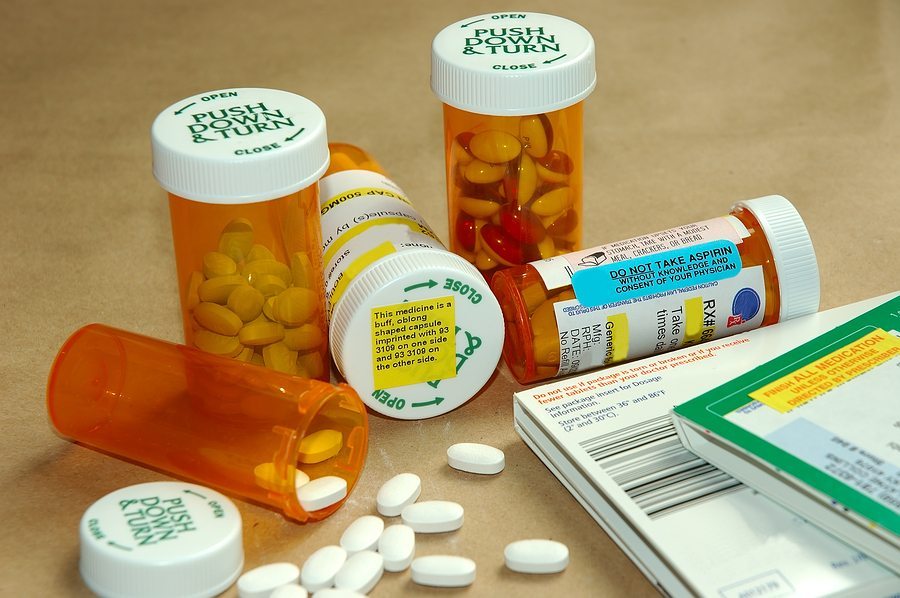Drug Recalls
Manufacturers issue recalls on dangerous drugs and medical devices every year. Consumers affected by recalls may be entitled to compensation through filing a drug lawsuit against the company at fault.
Harmful Side Effects Lead to Prescription Drug and Device Recalls
Annually, defective drug and medical device recalls climb to new heights. With new drugs continually hitting the market, the testing process has faced significant quality assurance issues in order to get products out quicker. Problems often arise when drug assessments have a sample size that’s too limited or an insufficient amount of time to test. It’s not until individuals begin experiencing adverse side effects that some manufacturers start taking a closer look at prescription drug safety.
Nearly three in five Americans are on at least one prescription drug. 20 percent of those are said to be on at least five or more prescription drugs at any given time.Common serious side effects of dangerous drugs and medical devices may consist of:
- Birth defects
- Blood clots
- Stroke
- Heart attack
- Liver damage
- Kidney damage
- Cancer
- Death
Even drugs once labeled as safe could potentially run into problems later on resulting in a recall, black box warning or having it pulled completely from the market. Another medication safety issue consumers should be aware of is “off-label” marketing. To increase consumption and profits, some manufacturers persuade doctors to prescribe a drug for conditions it has not been approved to treat. This practice can lead to serious medical complications and potentially life-changing consequences.
If you or a loved one have experienced any of these negative effects from a prescription drug or medical device that has since been recalled, you may be entitled to receive compensation for the manufacturer’s negligence. Complete a form today for a free legal consultation and have your case evaluated.
Types of Recalls for Drugs and Medical Devices
 When a defective drug or medical device is recalled, it may fall into one of three classes: Class I, Class II or Class III.
When a defective drug or medical device is recalled, it may fall into one of three classes: Class I, Class II or Class III.
- Class I, the most serious type of recall, indicates that the drug has a high chance of causing severe health consequences or even death. For example, Heparin, the blood thinner that treats and prevents blood clots, was issued a Class I recall after a particulate matter was found in a single unit. The injected particulate material could result in dangerous adverse effects and had to be pulled from pharmacies and clinics.
- Class II recalls are the most common of drug recalls. This includes drugs that could potentially lead to harmful effects that are temporary or have a very small chance of causing dangerous side effects. A notable case, Acarbose is prescribed to help those with type 2 diabetes control high blood sugar levels. The Acarbose 50 mg tablets, however, received a Class II recall for samples that did not meet the specification limits.
- Class III is the least serious type of recall. These drugs are unlikely to cause harm. Take Lutera, a type of birth control, for example. It was issued a Class III recall due to the drug’s packaging. While there was no danger to consumers, the product was found to be distributed with outdated package inserts.
After a manufacturer has issued a recall, they are responsible for notifying the public through various means such as press releases, letters to consumers and other media outlets. Doctors and pharmacies learn about drug recalls and are also able to alert patients about their potential safety consequences.
Surge in Prescription Drug Recalls and Manufacturer Lawsuits

Accutane Lawsuits Allege Numerous Harmful Side Effects
A drug to treat severe acne, Accutane’s troubled history includes a multitude of lawsuits due to its harmful and sometimes, life-threatening side effects. Initially linked to birth defects, lawsuits against Accutane now have brought a range of additional risks associated with the drug. In many of the cases, patients claim that the manufacturer never warned them of dangerous side effects including depression, inflammatory bowel disease (IBD), muscle pain, hearing impairment, and decreased night vision.
Possible Type 2 Diabetes Risk for Lipitor Users
Consumed to reduce bad cholesterol while increasing good cholesterol, Lipitor is also intended to help lower the risk of heart attack, stroke and chest pains. Advertised as a safe and effective drug, studies have shown Lipitor potentially elevating blood sugar levels which may lead to type 2 diabetes. Lawsuits against the manufacturer, Pfizer, allege that women have a higher probability of developing type 2 diabetes while taking the drug and don’t see as many benefits as male users.
Meridia Linked to Cardiovascular Side Effects
Meridia came on the market as a weight loss drug to help obese patients, as well as other heavy individuals who wanted to lose extra pounds. Following a safety review which took nearly a year to complete, research revealed a potential for cardiovascular side effects. Results indicated that those taking Meridia could develop type 2 diabetes, heart disease or comparable conditions, prompting thousands of lawsuits against the drug manufacturer. The weight loss drug also has former users stating they didn’t lose as much weight as originally expected.
Increased Chance of Birth Defects When Taking Prozac
One of the oldest antidepressants on the market, Prozac has faced thousands of lawsuits over the years due to harmful effects experienced from taking the drug. Although its black-box warning indicates the increased risk of suicidal thinking and behavior, Prozac has faced angered consumers who say the drug caused harmful birth defects. When taken by a woman in her first trimester, life-threatening effects can include Persistent Pulmonary Hypertension (PPHN), cleft palate, cranial birth defects and clubfoot.
Medical Devices Face Recalls after Safety Tests find Adverse Effects

DePuy Hip Replacement Faces High Failure Rate
Early on, the DePuy hip replacement claimed to offer active individuals a unique option – a metal-on-metal implant said to improve durability and reduce the possibility of dislocation. The friction of normal movement, however, discarded debris into nearby tissues and bloodstreams. Not only painful, the debris caused patients devastating injuries. In addition, DePuy estimated that the product would fail in up to 40 percent of patients in as little as five years; whereas other hip devices last for approximately 15 years.
Serious Potential Side Effects of Mirena Lead to Hospitalization
Although marketed as a safe, reversible method of birth control, Mirena has faced thousands of lawsuits stating that the manufacturer failed to warn consumers about risky side effects. The drug has most notably been connected to neurological side effects such as pseudotumor cerebri (PTC) which can imitate the effects of a brain tumor. Additional adverse side effects of Mirena include device expulsion, device dislocation, ovarian cysts and abdominal pain – some which could entail hospitalization or surgery.
Gaps Found in Zimmer Persona Knee Replacement Patients
Promoted as an innovative knee replacement solution, the Zimmer Persona Knee claimed to be an implant that would help restore an individual’s mobility. After being on the market for only three years, patients stated the device started becoming loose which caused substantial pain, swelling and potential bone damage. With a possibility of gaps forming between knee replacement components, lawsuits against the manufacturer claim that the product was inadequately tested.
Power Morcellators Associated with Spread of Cancerous Cells
The power morcellator – a tool used to remove tissue during surgery – has grown in popularity over the years, specifically for uterine fibroid removal or hysterectomy procedures. Approximately 600,000 hysterectomies are performed each year in the U.S., and at least 40% of those are used to treat noncancerous growths in the uterus called uterine fibroids. Numerous lawsuits have been filed saying some procedures using a morcellator spread malignant cells and put women at risk by aggravating undiagnosed cancer.
Legal Support for Defective Drug and Device Recalls
If you or a loved one have fallen victim to a defective drug or device that has been recalled, you may be entitled to compensation. Complete a form today for a free legal consultation to evaluate your case.
Last Edited: August 5, 2016